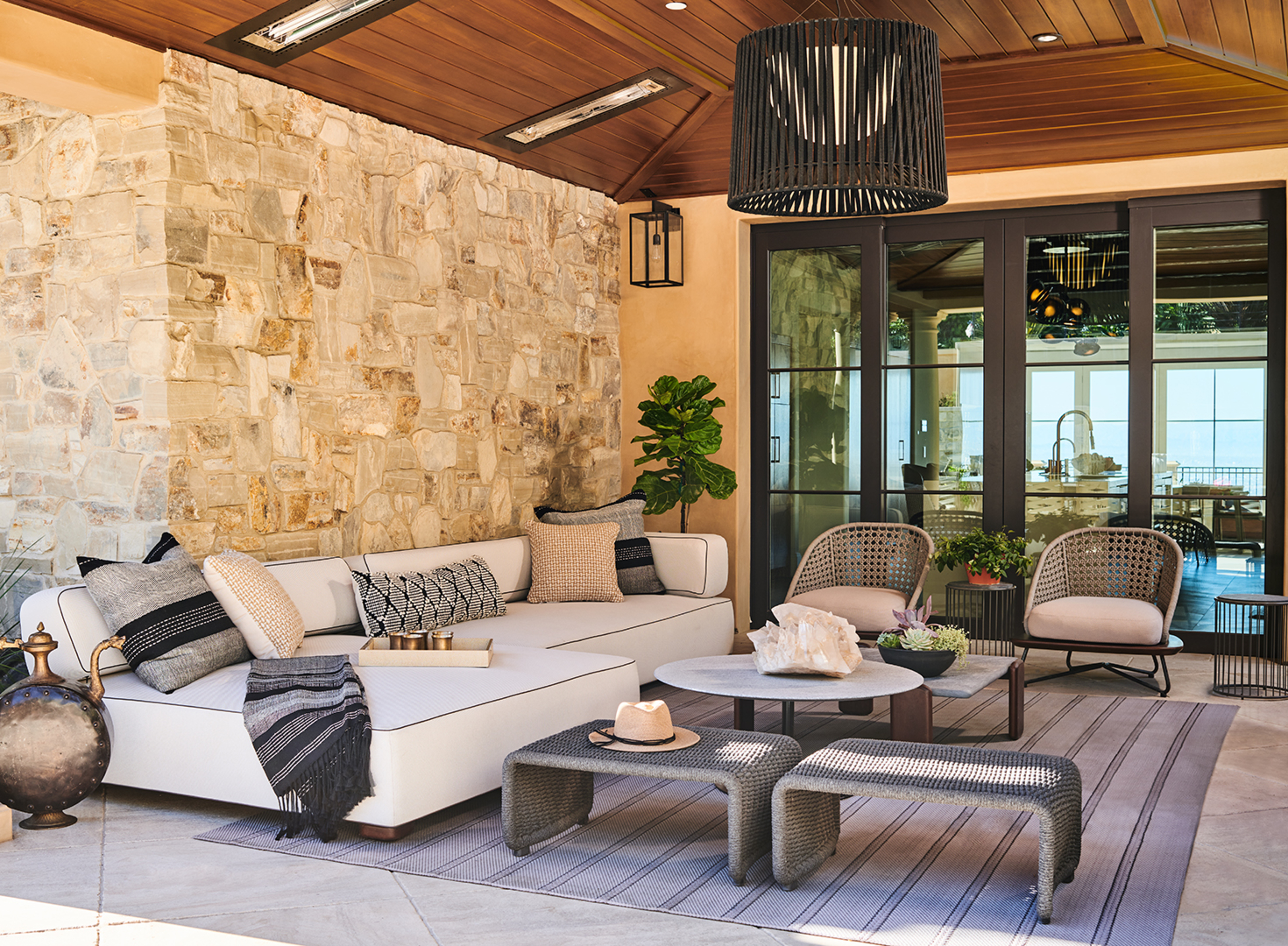
With the promise of warmer months ahead, our thoughts are turning to our outdoor spaces, and how we can make the very most of them in spring and summer. More and more homeowners are embracing this extra space with outdoor living rooms, extending their interiors onto a deck or patio, or taking up a cozy corner of the backyard where they can enjoy al fresco lounging surrounded by nature.
'The garden provides a sense of refuge from the outside world,' says Paul Sangha, principal landscape architect at Paul Sangha Creative. 'It could be as small as an urban balcony. There's always an opportunity to create a space of calm, nourishment, and solitude at every scale.' If you're considering extending your living room to your backyard, these are the 5 elements that people with calming outdoor living rooms will always have.
1. Enhanced privacy
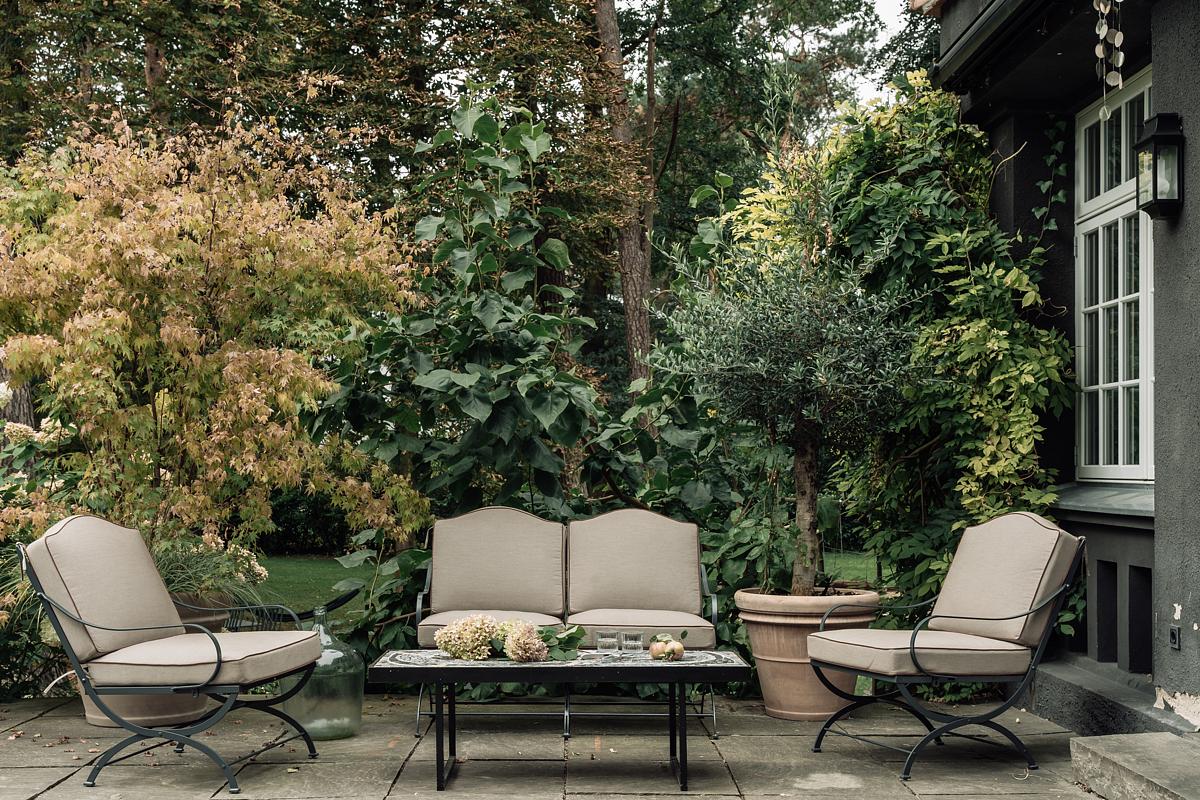
Just as with your main living room, you want to feel at home in your outdoor living space. To help you feel comfortable, we prescribe a cozy space that feels private and intimate. There are many ways to encourage that sense of seclusion.
'Create intimate spaces that are nestled against taller planting or screens to create a sense of comfort and safety,' recommends Paul Sangha. A strategically placed trellis or pergola could do the job, or a wall of bamboo that stops the prying eyes of nosy neighbors.
Isabelle Brooks, studio director at Baird Architects advises using the architecture of the backyard to help create your intimate area. 'Use architecture as a backdrop to create exterior rooms,' she says. A fence or wall could be a useful vertical tool to help construct your living room.
Alternatively, and as seen in this example by the studio, TINNAPPELMETZ, tall trees, and plants have been used to create a green wall. ‘Best privacy plantings include trees of all seasons,' says Don Eaton, founder and CEO of Bower and Branch. 'A blend of shapes, foliage colors, flowering times, evergreen, fall foliage, and forms are so important.’ says Don.
2. Incorporate natural materials

To encourage a feeling of calm in your outdoor living room, we also recommend relying on natural materials that call to your natural surroundings. So often, natural materials are used in our interiors to calm the ambiance and the same can be done to make backyards more relaxing. 'Wood, stone, and soft surfaces like groundcovers and pebbles can help calm your outdoor living room,' says Paul.
When it comes to wood, make sure that the wood you choose is resistant to rot and insects, and pay close attention to its maintenance requirements before purchasing. You will want to waterproof your wood with three e to four coats of polyurethane.
'I try to stay with robust, natural materials, especially natural stone,' says Paul Moon of Seattle-based architectural firm Paul Moon Design. If you're using stone for a patio, think about the finish. 'Another element to notice with natural materials is the finishes – for example, making sure the capstones (a stone at the top of a wall or building) are sufficiently thick to give the natural elements a grounded and solid feel.'
3. Strategically placed furniture to enhance the flow
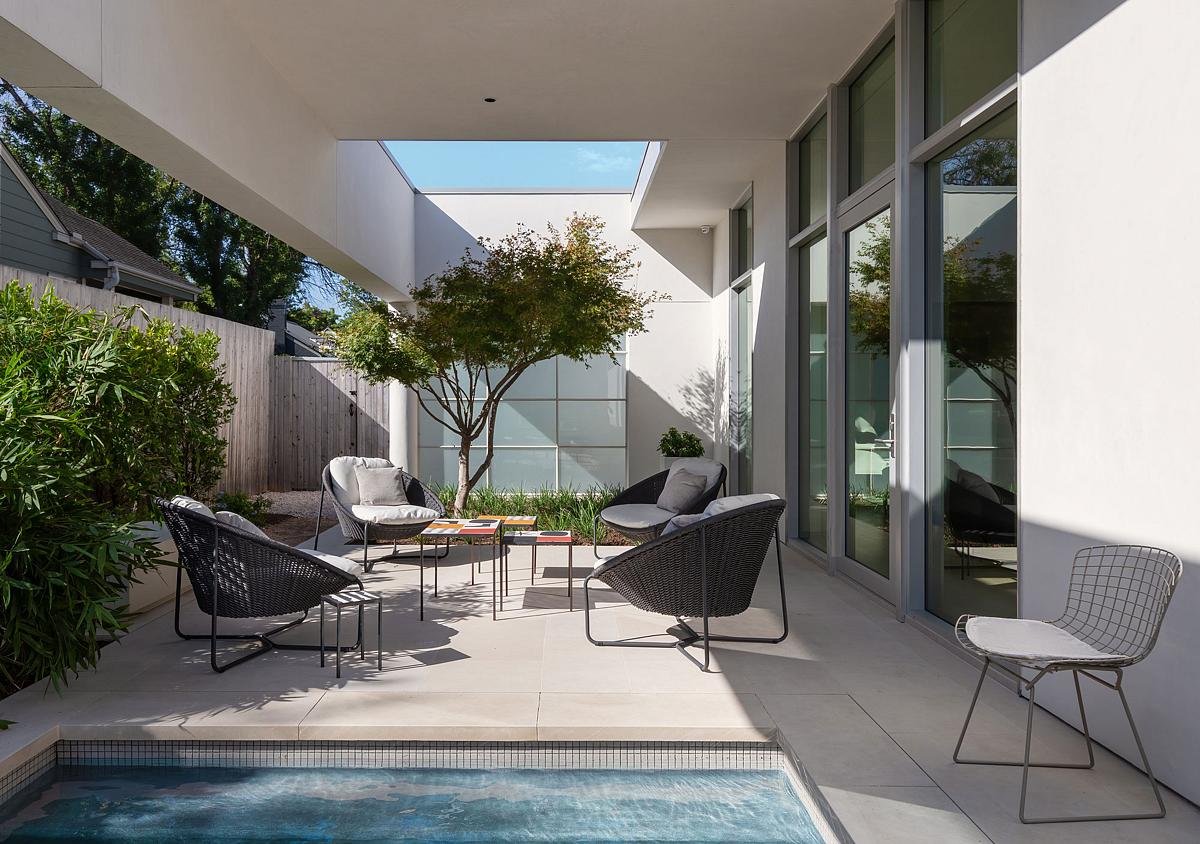
Like with your indoor living rooms, make sure furniture is well-placed and considered to ensure the flow of your outdoor living space works for you. Think about the placement of the seating and if your outdoor bench is facing the right way to stimulate conversation and relaxation.
Consider complementing your modern outdoor furniture with outdoor side tables, and coffee tables, and ground the space with a rug underfoot to zone the living room. 'Understanding the human scale, and universal comforts is important,' says Paul.
Remember to furnish your outdoor seating area too. Nothing feels cozy and relaxing about a hard wooden bench without any soft furnishing. 'Indoor pillows dress up the outdoor scene and you don't need to shy away from using indoor fabrics,' says designer Susan Skornicka. 'The materials are often much more vibrant and luxe than outdoor textiles, and bring out the blankets too!'
4. Try a cohesive color scheme
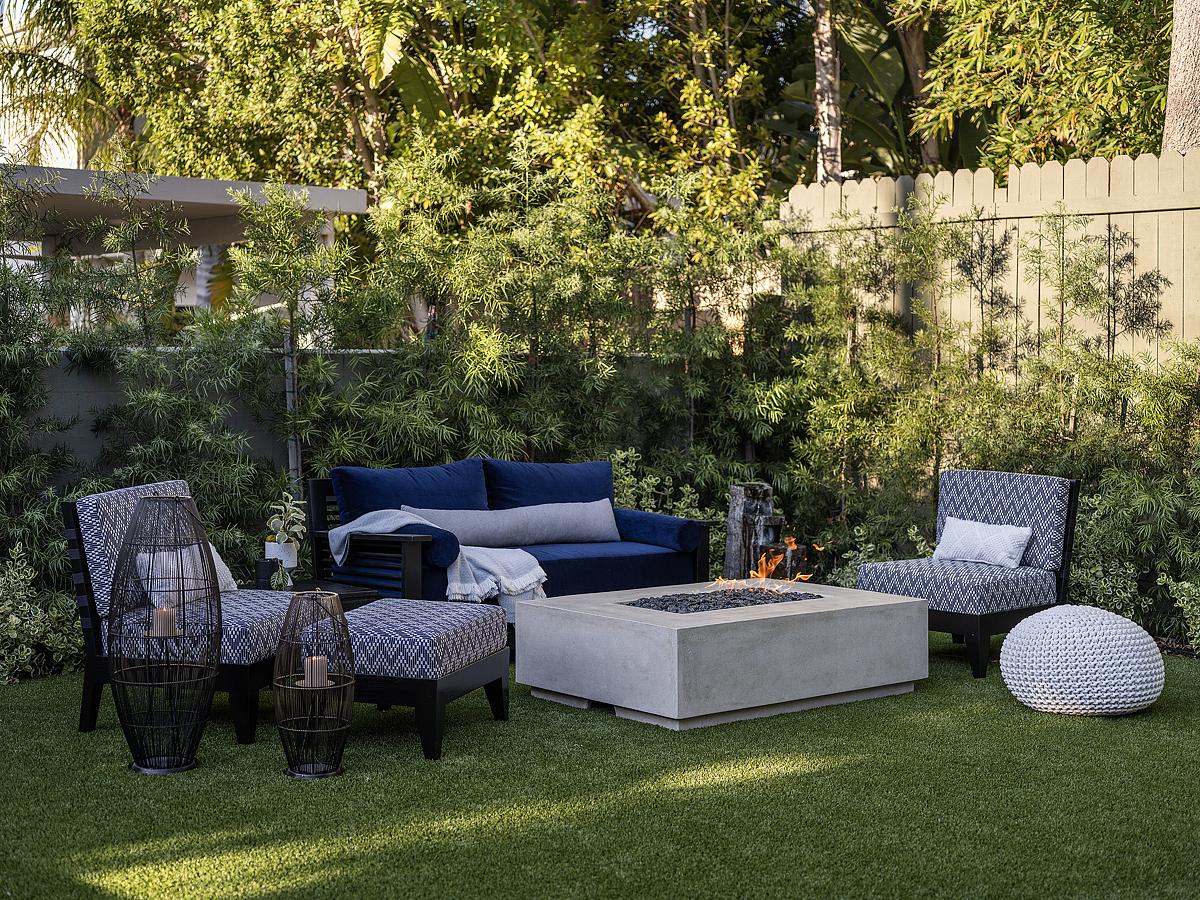
A calming space, whether inside or out, requires a cohesive backyard color scheme. Opt for colors that soothe like muted pastels. Blues can be calming, as seen used perfectly in this example by SUBU Design Architecture.
'The calm neutral interior palette opens you up to the lush, landscaped backyard and a plunge pool with bold azure blue water contrast with black accent and dramatic geometric patterned tiles,' explains May Sung, principal of Los Angeles-based SUBU Design Architecture. 'The gourmet outdoor kitchen doubles as a cocktail bar for grownups. The lower outdoor seating area that we call the living room is centered around a built-in firepit where you can look back at the house while enjoying the trickling sound from the fountain. We also upcycled all the client’s existing teak furniture with new upholstery that can withstand the outdoor elements.'
Take your cues from the surrounding fauna around you too. 'One of my favorite ways to design a calming garden space is to exclusively use shades of green and relying on different shades and textures to create dimension and interest,' says Kat Aul Cervoni, landscape designer and founder of Staghorn NYC and The Cultivation by Kat.
'Creating a tranquil space goes beyond simply what you see with your eyes,' agrees Paul. 'A successful space engages all the senses. The soothing qualities of the color green are perfect. It is the most easily perceived color to the human eye and research suggests that because of this, it requires less strain on our part to be able to perceive it, ultimately allowing our nervous system to work less and allow ourselves to relax.'
5. Bring in plants to brighten up the space
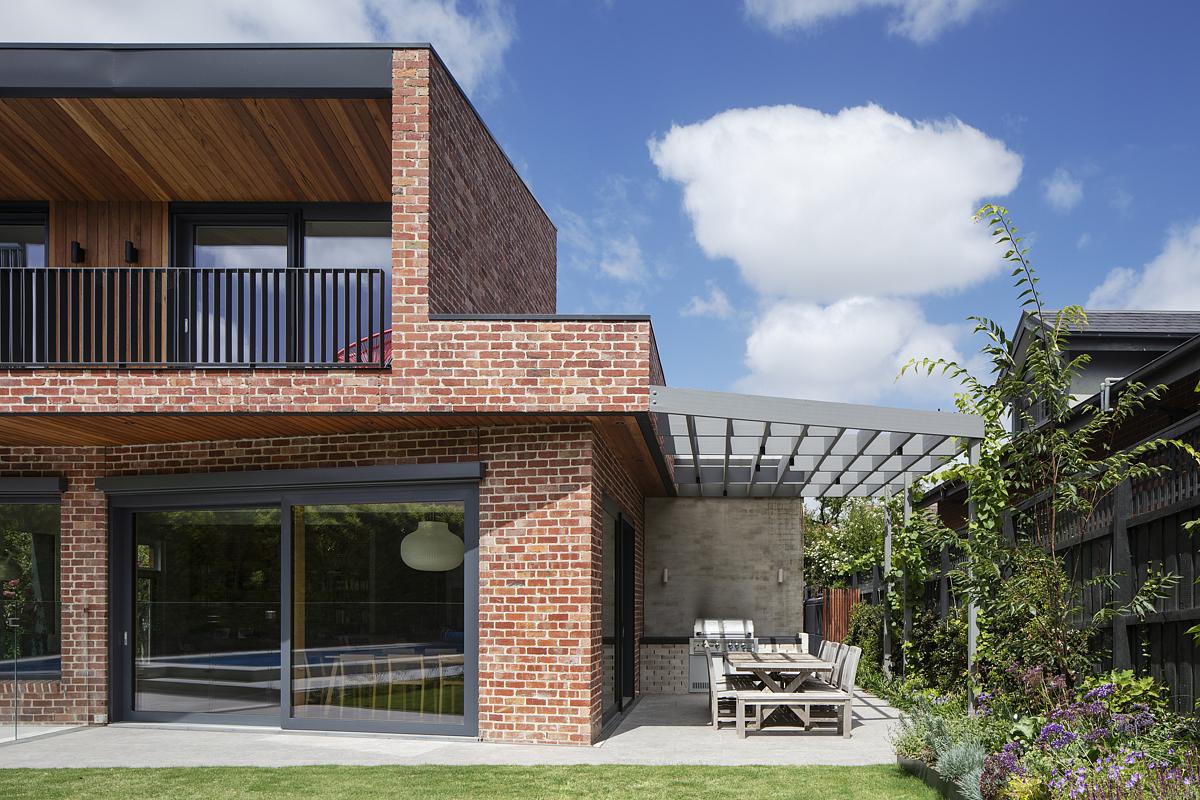
Growing and nurturing flowers and plants that make your backyard more relaxing can be a deeply rewarding and therapeutic experience and can help accessorize the space with cheery pops of color.
From edible gardens to a flowerbed that has undergone strategic planting, flowers and plants can really help to bring that calming atmosphere to your space. 'Vegetables, herbs and fruits do not need to be isolated in their own planters,' says Paul. 'Edible spaces can be mixed into beds with other perennials and grasses to create a dynamic mixed palette, allowing you to engage with an area of the garden.'
Enlist the help of planters and flower beds with your favorite seasonal flowers too. ‘Tightly pruned evergreens like boxwood and matching planters can help make your outdoor living room and backyard look more expensive,’ says Kat.
Bring a sense of calm to your outdoor living room with these three buys
Material: PE rattan and steel frame
Price: $153.33







